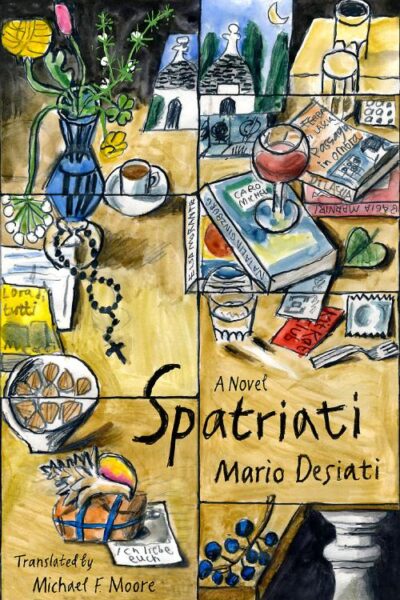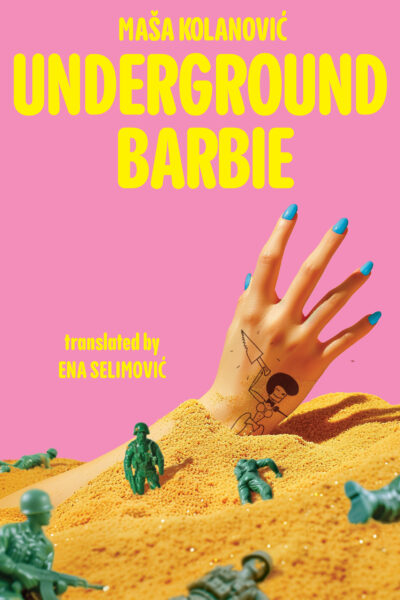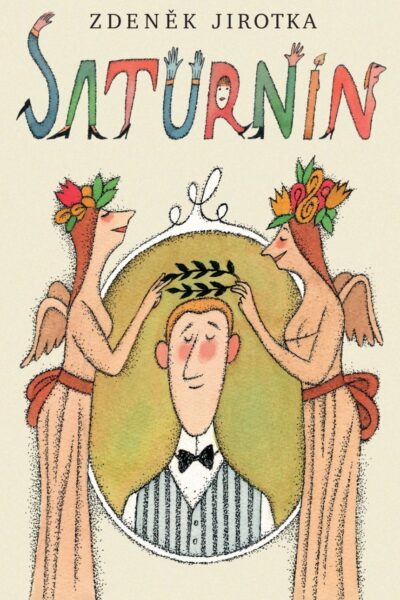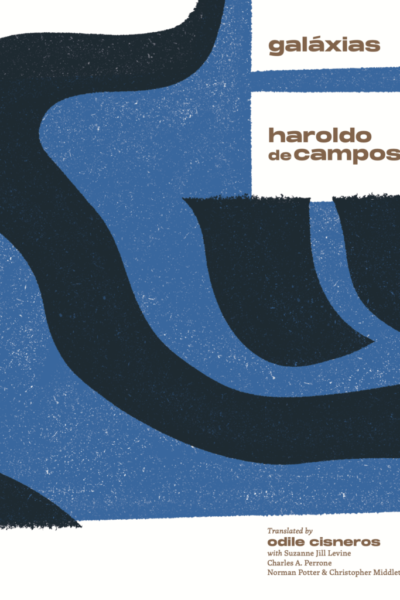From Savagery – Alejandra Banca
FROM SAVAGERY, the debut work of fiction by Alejandra Banca, beautifully translated by Katie Brown . . . gives a voice to a new generation of Venezuelan migrants creating life abroad.
Here, [Michael F. Moore] lends his English to Francesco’s angst and Claudia’s rebellion with the compassion of a parent who wants to support you without you knowing it, hiding in the bleachers at the JV soccer game with a silent smile.
Grandma Non-Oui – Lidija Dimkovska
Lidija Dimkovska’s new novel . . . explores how history mirrors human life itself: complex, recursive, non-linear, and defiantly inconclusive.
Underground Barbie – Maša Kolanović
For a novel set during debilitating times, UNDERGROUND BARBIE is frequently quite funny. The seriousness is masterfully cut, and paradoxically intensified, by the antics of the children and the scenarios they dream up.
The Summer Without You – Petar Andonovski
Despite its setting on the sun-soaked coast of Crete, THE SUMMER WITHOUT YOU shivers with the cold reckonings of disillusionment and adulthood
With her steady, precise attention to everyday life on this sad, cozy ward, Gråbøl gently troubles our received ideas about healing.
Saturnin wants his master to be an adventurer, but he doesn’t merely plan or dream: He acts on his fantasies, creating situations that force his master out of his banal existence and into the unexpected.
The Propagandist – Cécile Desprairies
Desprairies challenges the reader to inhabit a morally fraught protagonist. Why would someone collaborate with Nazis, the novel asks. Who would do such a thing?
Years and Years – Hwang Jungeun
Sejin and Yeongjin seem to be aware of the pitfalls of their mother’s refusal to speak of her past . . . but they ultimately do the same themselves. The three women take silence as a given, assuming that speaking would only lead to more harm.
GALÁXIAS takes not only São Paulo, but the entire universe in its orbit.











